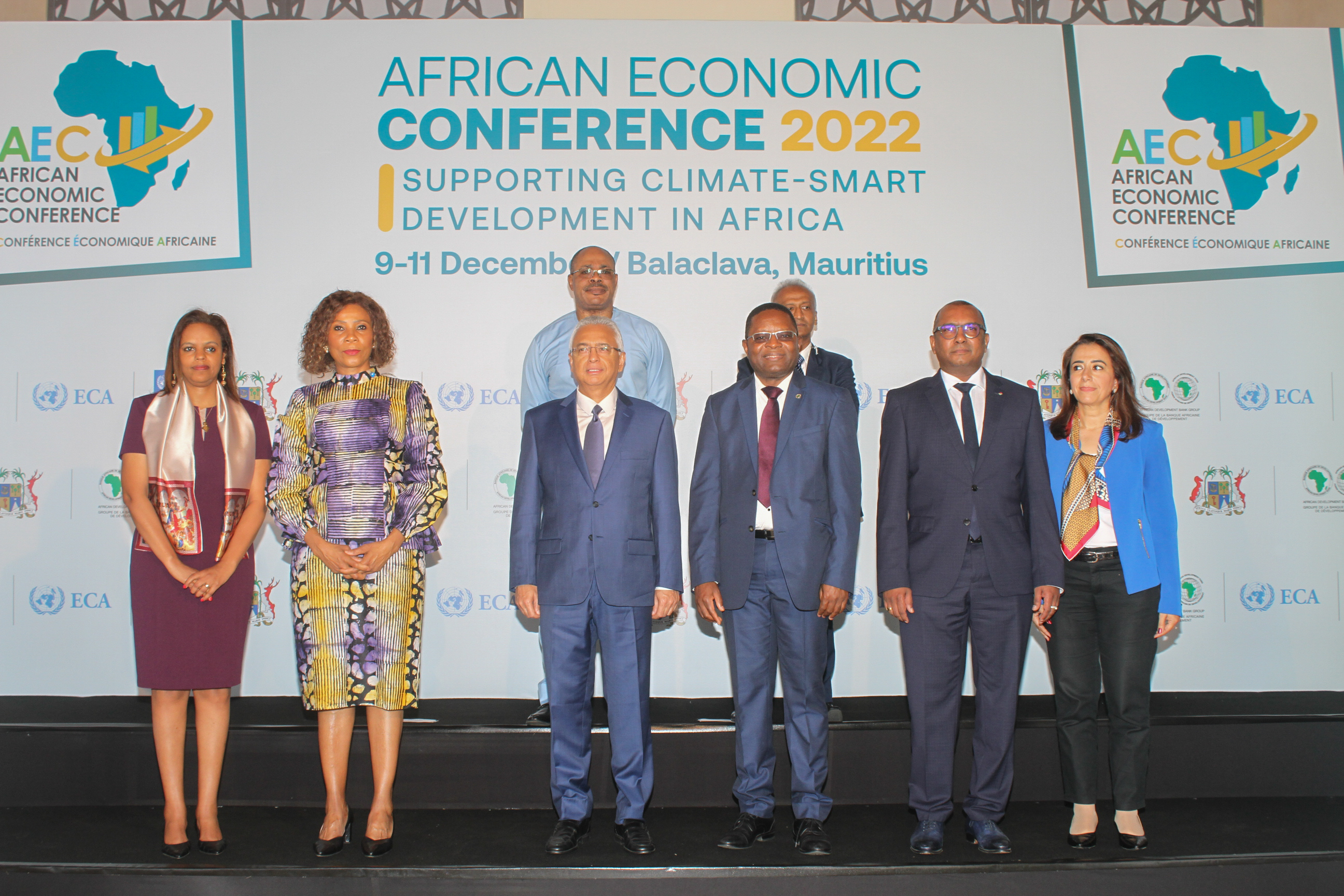African Economic Conference opens with a strong call for adaptation measures to tackle the “looming climate change threat” to Africa
December 9, 2022

Balaclava, Mauritius 9 December 2022 – The 2022 African Economic Conference (AEC) opened today in the island nation of Mauritius with a strong call for Africa to adopt smart technologies to tackle what speakers described as ‘the looming climate change threat’ to the continent.
“Supporting climate-smart development in Africa is extremely pertinent. Climate change is a looming threat to Africa. The continent is the most vulnerable region to climate disasters,” Pravind Kumar Jugnauth, Prime Minister of Mauritius said at the conference opening.
Prime Minister Jugnauth stressed how the rise in petroleum prices caused by the war in Ukraine should quicken Africa’s motivation to shift away from fossil fuels and become self-sufficient in electricity production. “In order to face the challenges of climate change more effectively, Africa needs the support and assistance of development partners,” he added.
The largest pan-African economic meeting is being held under the theme “supporting climate-smart development in Africa.” It is bringing together various stakeholders— policymakers, climate experts, the private sector, researchers, and youth—to discuss and draft an action plan to support the low-carbon and climate-resilient development of Africa.
In a speech read by Acting Chief Economist and Vice-President, Prof. Kevin Urama, the African Development Bank President Dr. Akinwumi Adesina underscored the urgency of Africa adapting to climate change.
“Africa is suffering from the devastating effects of climate change, from droughts, floods, irregular rainfall, locusts, and armyworms, he said. “Supporting climate-smart, environmentally friendly development is one step in the right direction,” he said.
Estimates show that Africa suffers $7-15 billion per year in GDP losses to climate change, which are projected to rise to $45-50 billion per year by 2040.
During COP27, the African Development Bank and its partners launched the Alliance for Green Infrastructure in Africa to speed up the development of green infrastructure in Africa.
In her remarks, Assistant Administrator and Director of the Regional Bureau for Africa at the United Nations Development Programme, Ahunna Eziakonwa, emphasized that Africa’s path to attaining the Sustainable Development Goals (SDGs) must be climate smart.
“It is important to emphasize that Africa’s path to attaining the SDGs must by climate-smart. Protecting the planet cannot be an option, it is an urgent priority, noted Ms. Ahunna Eziakonwa.
Speaking on the recently concluded United Nations Climate Change Conference, COP 27, she said: “While COP27 in Egypt did not achieve the drastic reduction in emissions that the world needs, it did see the establishment of funding arrangements for loss and damage.”
Ms Eziakonwa told participants about the new "Africa Minigrids" partnership between the Global Environment Facility, the United Nations Development Programme, the African Development Bank, and the Rocky Mountain Institute. Together they will support new solar battery mini-grid markets in 21 countries in Africa.
Deputy Executive Secretary of the United Nations Economic Commission for Africa, Dr. Hanan Morsy observed that the theme of this year’s conference provides the opportunities to digest and synthesize the discussions at COP 27 and propose recommendations for supporting climate-smart development in Africa.
“Africa needs to close huge development gaps by investing substantially in key sectors such as energy, agriculture, transport, water, and cities, among others. These sectors are all very vulnerable to the adverse impacts of climate change,” Morsy said.
ECA is working with partners to support the development of just energy transition plans in many African countries, tapping the continent’s abundant clean energy resources. It is also working with African Export-Import Bank, the Africa Finance Cooperation, the African Development Bank, and other partners to leverage the African Continental Free Trade Area to use Africa’s abundant clean energy resources to transform the continent’s minerals.
The idea is to “support regional and global value chains related to the global drive for net zero emissions,” Morsy said.
The African Economic Conference is jointly hosted by the African Development Bank, the Economic Commission for Africa, and the United Nations Development Program.
Click here for photographs
For more information, please contact:
Praise Nutakor, Communication Specialist, UNDP, praise.nutakor@undp.org
Emeka Anuforo, Communication and External Relations, African Development Bank, media@afdb.org
Ernest Cho Chi, Acting Communications Head, ECA, chi@un.org

 Locations
Locations



